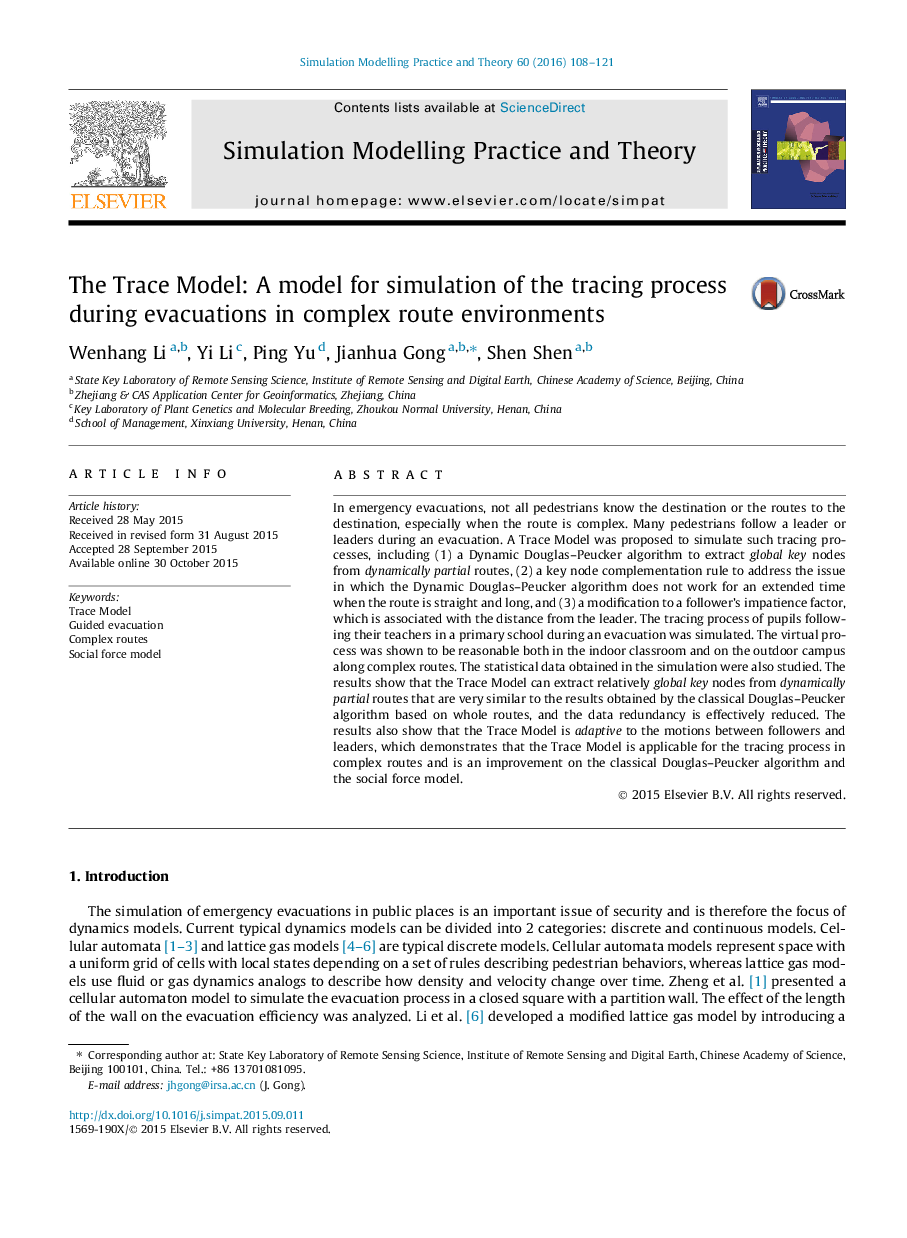| Article ID | Journal | Published Year | Pages | File Type |
|---|---|---|---|---|
| 492443 | Simulation Modelling Practice and Theory | 2016 | 14 Pages |
•A Trace Model was proposed to model the tracing process in complex routes.•The Trace Model was employed in simulating the tracing process in a primary school.•The simulated tracing process based on the Trace Model was reasonable.•The Trace Model can extract relatively global key nodes from dynamic partial routes.•The Trace Model is adaptive to the motions between followers and leaders.
In emergency evacuations, not all pedestrians know the destination or the routes to the destination, especially when the route is complex. Many pedestrians follow a leader or leaders during an evacuation. A Trace Model was proposed to simulate such tracing processes, including (1) a Dynamic Douglas–Peucker algorithm to extract global key nodes from dynamically partial routes, (2) a key node complementation rule to address the issue in which the Dynamic Douglas–Peucker algorithm does not work for an extended time when the route is straight and long, and (3) a modification to a follower’s impatience factor, which is associated with the distance from the leader. The tracing process of pupils following their teachers in a primary school during an evacuation was simulated. The virtual process was shown to be reasonable both in the indoor classroom and on the outdoor campus along complex routes. The statistical data obtained in the simulation were also studied. The results show that the Trace Model can extract relatively global key nodes from dynamically partial routes that are very similar to the results obtained by the classical Douglas–Peucker algorithm based on whole routes, and the data redundancy is effectively reduced. The results also show that the Trace Model is adaptive to the motions between followers and leaders, which demonstrates that the Trace Model is applicable for the tracing process in complex routes and is an improvement on the classical Douglas–Peucker algorithm and the social force model.
